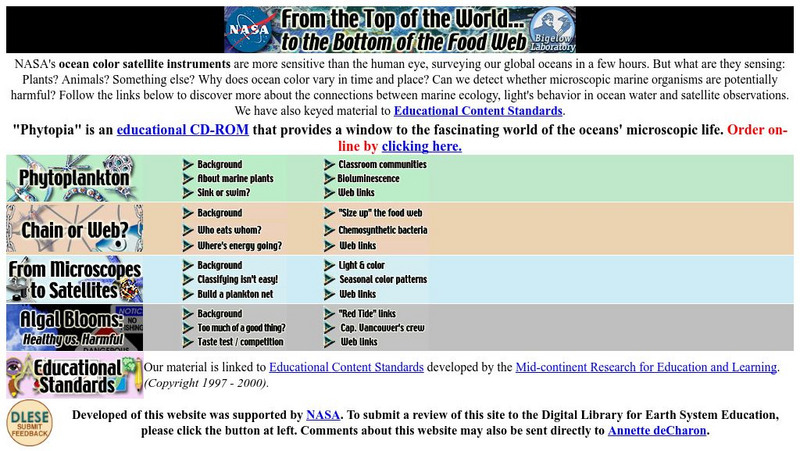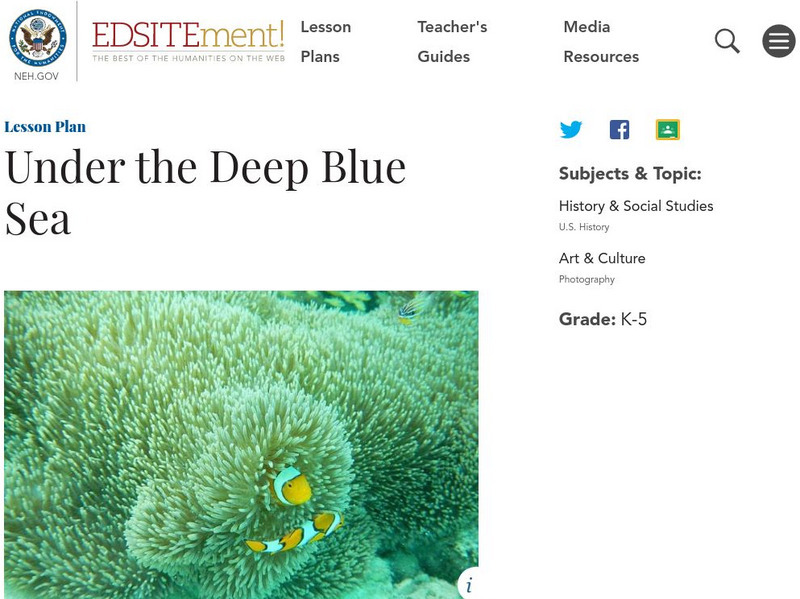Scholastic
Scholastic Explorers: Ocean Life
This lesson plan explores how human activity has an impact on turtles, sea otters, and dolphins in different parts of the world. Your students will read field reports from the sites and evaluate data that is offered.
National Geographic
National Geographic: Ecosystem Imbalance in the World
In this activity, students build on their knowledge of individual impacts on the ocean to see how the whole system can react to threats and changes. They examine ways in which human actions throw marine ecosystems out of balance, explore...
PBS
Pbs Teachers: Ocean Careers Exploration
Investigate careers in oceanography and marine exploration. Create a report on the life, education and career of a member of the Ocean Adventures Expedition team and present it in a creative way.
Other
Nasa: From the Top of the World to the Bottom of the Food Web
Teachers and students discover linkages among marine ecology, phytoplankton, the behavior of light at the ocean surface, and satellite-derived ocean color data. Explore the topics of phytoplankton, food webs, and algal blooms using...
Kinder Art
Kinder Art: Construct an Artquarium (Lesson Plan)
This lesson plan gives young scholars a chance to create their own underwater animal out of paper-mache, and their imagination. Provides a colorful photo example, assessment criteria, and a suggested book to use for inspiration.
National Association of Geoscience Teachers
Serc: Modeling Sea Level: Lateral and Vertical Facies Changes
What do sequences of sedimentary rocks tell us about how sea level has changed? Students will use a tube and bead (or ball) model to visualize and predict how changes in sea level can control the lateral and vertical facies distribution...
National Endowment for the Humanities
Neh: Edsit Ement: Under the Deep Blue Sea (Lesson Plan)
Using language and resource skills to explore the ocean and the life within is what this lesson plan from EDSITEment is all about. The lesson is multi-level and resources and academic content standards are available.
HotChalk
Hot Chalk: Lesson Plans Page: Ocean Unit Introduction
This lesson will introduce young learners to oceans by looking at the animals, plants and water temperatures for different oceans.
Science Education Resource Center at Carleton College
Serc: Earthlabs: Corals Unit Overview
Six lab investigations on corals expose students to some of the most current scientific research, data, and visualizations in a way that allows them to become active participants in both learning about and conserving coral reefs.









